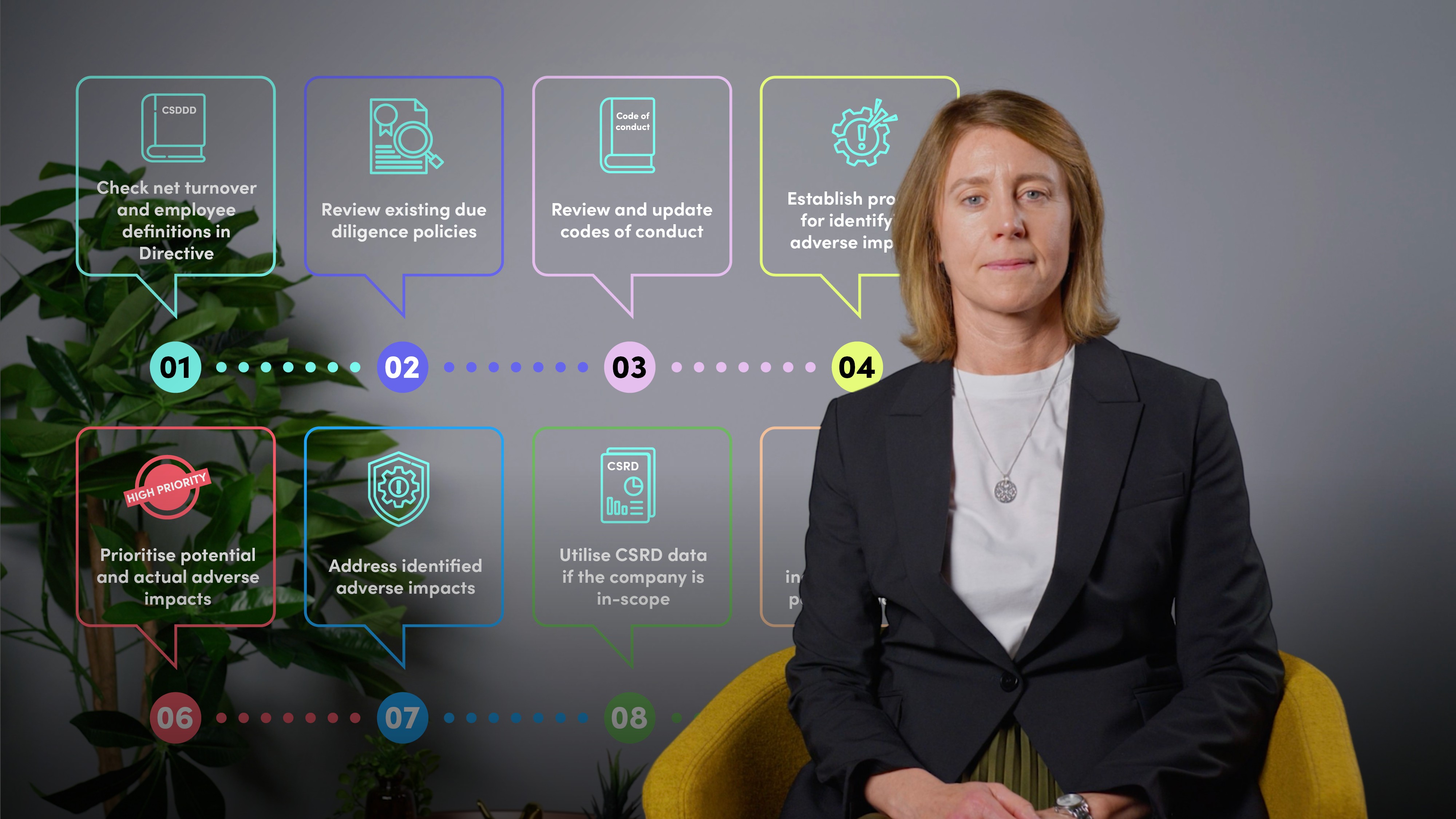
Implementation of the CSDDD

Kristy Duane
In the final video on the EU's Corporate Sustainability Due Diligence Directive (CSDDD), Kristy Duane from CMS explores the enforcement mechanisms of the Directive and what companies should do now to prepare.
In the final video on the EU's Corporate Sustainability Due Diligence Directive (CSDDD), Kristy Duane from CMS explores the enforcement mechanisms of the Directive and what companies should do now to prepare.
Subscribe to watch
Access this and all of the content on our platform by signing up for a 7-day free trial.

Implementation of the CSDDD
10 mins 2 secs
Key learning objectives:
Understand how the Corporate Sustainability Due Diligence Directive (CSDDD) will be enforced
Identify what companies should be doing now to prepare for CSDDD
Understand the role of Supervisory Authorities
Overview:
Subscribe to watch
Access this and all of the content on our platform by signing up for a 7-day free trial.
- Supply chain mapping and engagement - Companies are advised to map their supply chains, identify direct and indirect business partners, and assess areas with potential for significant adverse impacts. Engaging stakeholders, developing complaint procedures, and setting up monitoring processes are also critical steps.
- Climate transition planning - In-scope companies should start developing or reviewing their climate transition plans to ensure they meet the CSDDD’s requirements and align with the EU’s net-zero goals. They should also stay informed on forthcoming guidelines from the European Commission, which will provide sector-specific guidance and best practices for compliance.
Subscribe to watch
Access this and all of the content on our platform by signing up for a 7-day free trial.

Kristy Duane
There are no available Videos from "Kristy Duane"





























